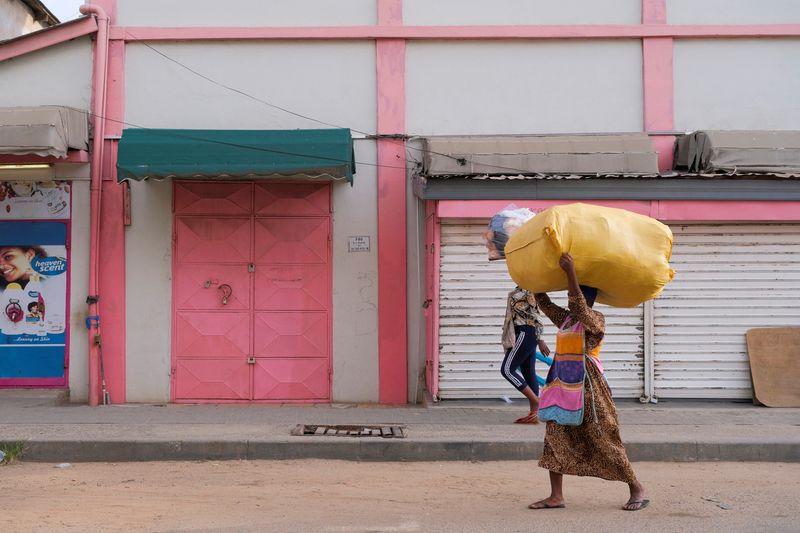ACCRA (Reuters) - Streets were quiet in the normally bustling heart of Accra's central business district on Wednesday as traders in the Ghanaian capital closed their shops to protest worsening economic conditions.
The Ghanaian cedi plummeted to a new low of 12.3 to the dollar on Wednesday, compared to 10.5 last week, as inflation surges despite repeated rate hikes by the central bank.
Ghana's government is in the process of negotiating a support package with the International Monetary Fund, but some merchants say that help is not coming fast enough.
"It's because of this dollar situation that we closed the shop. Day in day out, the dollar is going up now. It's too much for us," said Francis Fynn, 53, who has managed his family's small stationery store for two decades.
Because of the worsening exchange rate, he can't afford to buy books and paper from his suppliers, he said.
"We decided to close the shops, in hopes of sitting down with the government so we can negotiate things."
A government spokesman did not immediately respond to a request for comment.
Fynn is a member of the Ghana Union of Traders Association, which called for all its members in Accra to suspend activities from Wednesday to Monday in protest.
In one usually crowded street market downtown, about half to two-thirds of shops were closed, while some activity carried on.
Bookseller Alfred Kobina Otsiwah, who is not a member of the union, said his business was suffering too but he did not see a strike as the solution.

"If we close our shops until Monday, the government isn't going to just reduce the rate of the dollar because of that. The rate will likely even increase by then. Who loses?" he said, showing his wares on the small nook of a balcony downtown.
"Closing the shop, I don't see it as putting food on my table."